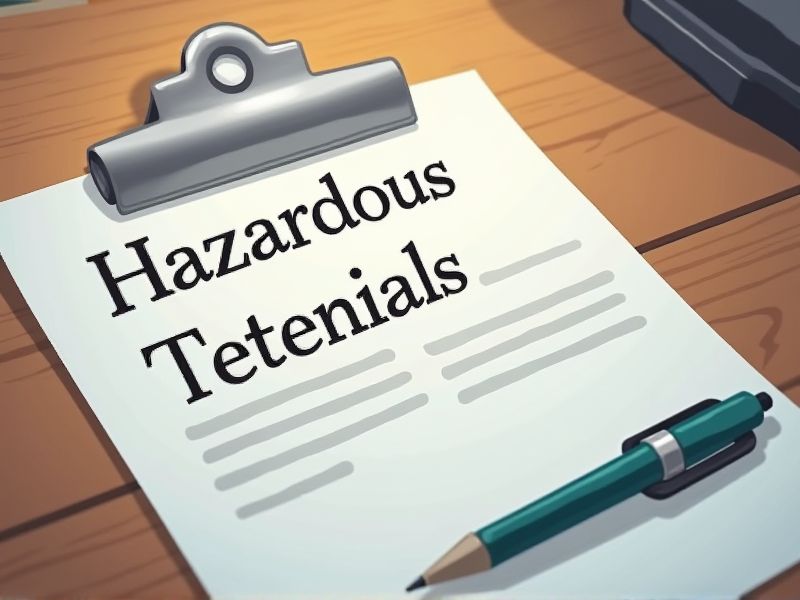
Hazardous materials technicians handle dangerous substances that pose risks to public safety and environmental health. The complexity of these materials demands specialized knowledge to manage them safely and respond effectively in emergencies. Specific certifications ensure technicians have the necessary skills to assess hazards, implement control measures, and conduct clean-up operations. Key certifications are vital for anyone pursuing a career as a hazardous materials technician.
OSHA HAZWOPER 40-Hour Training Certification
Hazardous Materials Technicians require the OSHA HAZWOPER 40-Hour Training Certification to ensure they can safely handle, manage, and mitigate risks associated with hazardous substances. The training provides crucial knowledge and skills for effective emergency response and cleanup operations. Certification compliance reduces workplace accidents and protects technicians from health hazards. Employers seek certified technicians to align with regulatory standards and ensure a safer work environment.
OSHA HAZWOPER 8-Hour Refresher Certification
The OSHA HAZWOPER 8-Hour Refresher Certification is critical for a Hazardous Materials Technician because it ensures updated compliance with safety protocols and regulatory standards. Regular training reduces the risk of health hazards by keeping technicians informed about the latest handling and emergency response techniques. Continuous education helps maintain a safe working environment, minimizing accidental exposures and environmental contamination. Employers benefit from reduced liability and potential fines due to adherence to OSHA standards through consistent workforce certification.
DOT Hazardous Materials Transportation Certification
DOT Hazardous Materials Transportation Certification is needed for a Hazardous Materials Technician because it ensures compliance with federal regulations, reducing the risk of penalties or legal issues for mishandling hazardous materials. It provides the necessary training to safely transport these materials, minimizing environmental and public safety hazards. Certification helps improve risk management by equipping technicians with the knowledge to handle emergencies efficiently. It enhances professional credibility and employment opportunities in sectors that prioritize safety and regulatory compliance.
EPA Hazardous Waste Operations Certification
The EPA Hazardous Waste Operations Certification ensures hazardous materials technicians are trained to handle and manage dangerous substances safely. This certification reduces the risk of accidents and injuries by providing essential knowledge in containment and emergency procedures. Compliance with federal regulations is achieved, minimizing legal and financial repercussions for organizations. Employers demonstrate their commitment to safety and environmental responsibility, fostering trust with clients and the community.
Certified Hazardous Materials Manager (CHMM)
The CHMM provides expert knowledge in the safe handling and disposal of hazardous materials, reducing risk and ensuring compliance with regulations. Their expertise helps prevent accidents and environmental damage, aligning with legal and safety standards. The certification signals a professional's competency, which can be critical for effective risk management and emergency response. Organizations seeking to improve safety outcomes benefit from employing CHMMs to train and oversee hazardous materials technicians.
NFPA 472 Hazardous Materials Technician Certification
The NFPA 472 Hazardous Materials Technician Certification is crucial as it establishes the standard required knowledge and skills for professionals responding to hazardous materials incidents. Compliance with this certification ensures that technicians can effectively identify and assess hazardous materials, which minimizes risks to public safety and the environment. Certified technicians are equipped to use specialized equipment and procedures, which enhances the efficiency and safety of incident responses. Employers and regulatory agencies recognize this certification as a benchmark for competency and safety, fostering trust and accountability in hazardous materials management.
Confined Space Entry Certification
Confined Space Entry Certification ensures hazardous materials technicians understand the risks associated with limited ventilation areas, minimizing the potential for toxic exposure. It equips them with the skills to safely navigate and operate within such environments, reducing accident risks. Certification provides standardized training on emergency procedures, enhancing technician readiness for unexpected situations. Employers often require this certification to comply with occupational safety regulations, ensuring a safer working environment.
Emergency Response to Hazardous Materials Certification
Emergency Response to Hazardous Materials Certification equips Hazardous Materials Technicians with the essential skills to safely handle and manage hazardous substances. The certification ensures that technicians can effectively assess risks and implement appropriate safety measures in emergency situations. Regulatory bodies, such as OSHA, often mandate such training to maintain workplace safety standards and compliance. Having this certification reduces the likelihood of accidents and environmental damage, safeguarding both public health and property.
CBRN Awareness Certification
Hazardous Materials Technicians often encounter dangerous substances, necessitating a thorough understanding of Chemical, Biological, Radiological, and Nuclear (CBRN) threats for safe handling. Inadequate knowledge or preparation can lead to severe personal and environmental consequences due to the volatile nature of these materials. CBRN Awareness Certification equips technicians with essential skills to assess, manage, and mitigate risks effectively during incidents involving hazardous materials. The certification enhances their preparedness and response capabilities, ensuring regulatory compliance and public safety.
HAZMAT Incident Command Certification
HAZMAT Incident Command Certification equips a Hazardous Materials Technician with critical leadership skills required in emergency situations. It ensures they can effectively coordinate operations, mitigating risks to human health and the environment during a hazardous material incident. Federal regulations stipulate that individuals in command roles possess this certification to maintain standardized response procedures. Certification validates a technician's comprehensive understanding of incident management protocols, enhancing overall safety and organizational compliance.
Summary
By obtaining certifications, you can significantly enhance your skills and knowledge as a Hazardous Materials Technician. You'll likely experience increased job opportunities and career advancement within your field. Employers may view your qualifications as a valuable asset, raising your professional standing. Such certifications can also lead to better pay and job stability due to your specialized expertise.
